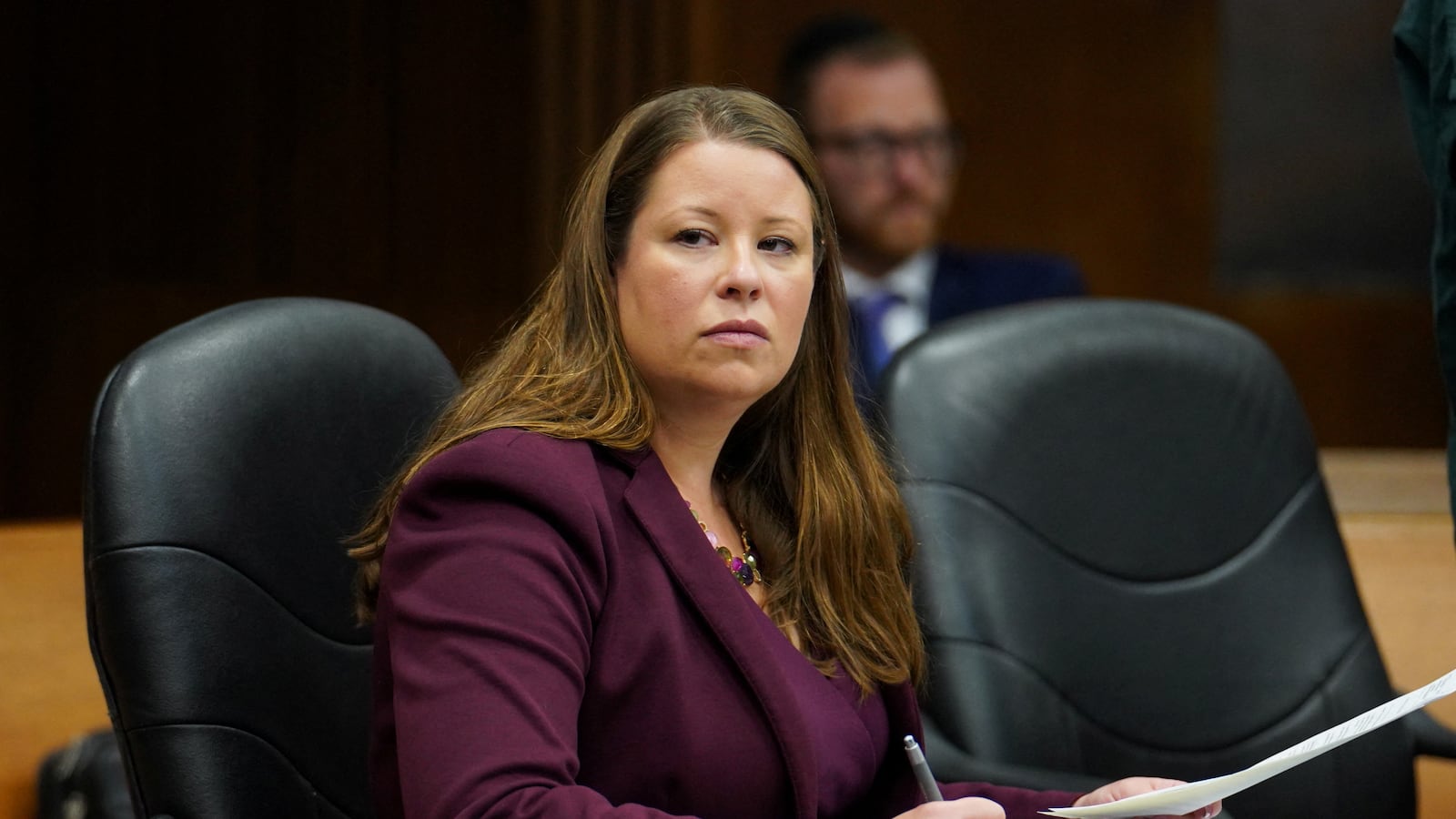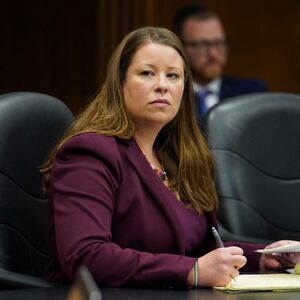A federal judge in Washington, D.C. took a rare step and disqualified Stefanie Lambert, a Michigan attorney and frequent 2020 election denier, from representing another election denier in one of the many defamation suits filed by Dominion Voting Systems after the lawyer admitted she shared confidential discovery documents.
Lambert was representing Patrick Byrne, the former CEO of Overstock.com, who became notorious for spreading voter fraud conspiracy theories after former President Donald Trump’s loss to President Joe Biden in 2020.
Dominion sued Byrne for defamation, alongside right-wing broadcasters One America News and Newsmax, after spreading conspiracy theories about their voting machines, which were used in several swing states.
Specifically, Byrne claimed that Dominion’s machines were developed by former Venezuelan President Hugo Chavez, who died in 2013, and that the company hired a truck to shred “3,000 pounds of ballots.”
Lambert was added to the case in March, 2024. According to an opinion signed by federal magistrate Judge Moxila A. Upadhyaya on Tuesday, Lambert “began openly violating orders, including by disseminating protected discovery material” before she even made her first appearance before the court.
“Lambert’s repeated misconduct raises the serious concern that she became involved in this litigation for the sheer purpose of gaining access to and publicly sharing Dominion’s protected discovery,” the federal judge wrote.
According to Upadhyaya, Lambert disseminated “thousands of documents, which both the plaintiff and the defendant agreed to keep confidential.” The judge said this move for disqualification was “extraordinary and rarely granted outside of cases involving conflicts of interest.”
After accessing the discovery documents, Lambert sent an email to Dominion’s lawyers explaining that she was handing the documents over to law enforcement.
“I had assumed that you, as counsel, were unaware of the criminal acts contained in discovery. These acts include, but are not limited to, perjury, fraud is [sic] services, wire fraud, and international interference in an election,” Lambert wrote.
According to the court, she handed the documents over to Sheriff Dar Leaf, the sheriff of Barry County in southwestern Michigan. “She reported that she not only gave Leaf documents, but that she also gave him a username and password to the entire repository of Dominion’s Litigation Documents,” Upadhyaya confirmed. Leaf went on to create a Twitter account which posted the discovery documents to the public, the judge said.
However, Lambert “failed to substantiate any of her conclusory allegations that Dominion’s Litigation Documents contain evidence of national security crimes,” the federal judge wrote. “Nor has Lambert explained why, when faced with these documents supposedly reflecting serious crimes of national importance, she chose to disclose them to a single county sheriff in Michigan as opposed to a national law enforcement agency such as the Federal Bureau of Investigation or Department of Justice. To the contrary, Lambert continues to advance these allegations despite being unable to point to any court authority that substantiates them.”
“We are filing an appeal,” Lambert told the Daily Beast in a brief email.
“They may think it was a tactical victory, but they will come to understand it was a strategic mistake,” Byrne told the Associated Press.
Lambert herself faces a slew of felony charges for her actions following the 2020 election. Last year, she was indicted on charges of undue possession of a voting machine, damaging a voting machine, and conspiracy for a scheme that allegedly involved “deceiving” clerks in three Michigan counties to hand over voting machines to “unauthorized third parties.” She has pleaded not guilty.







